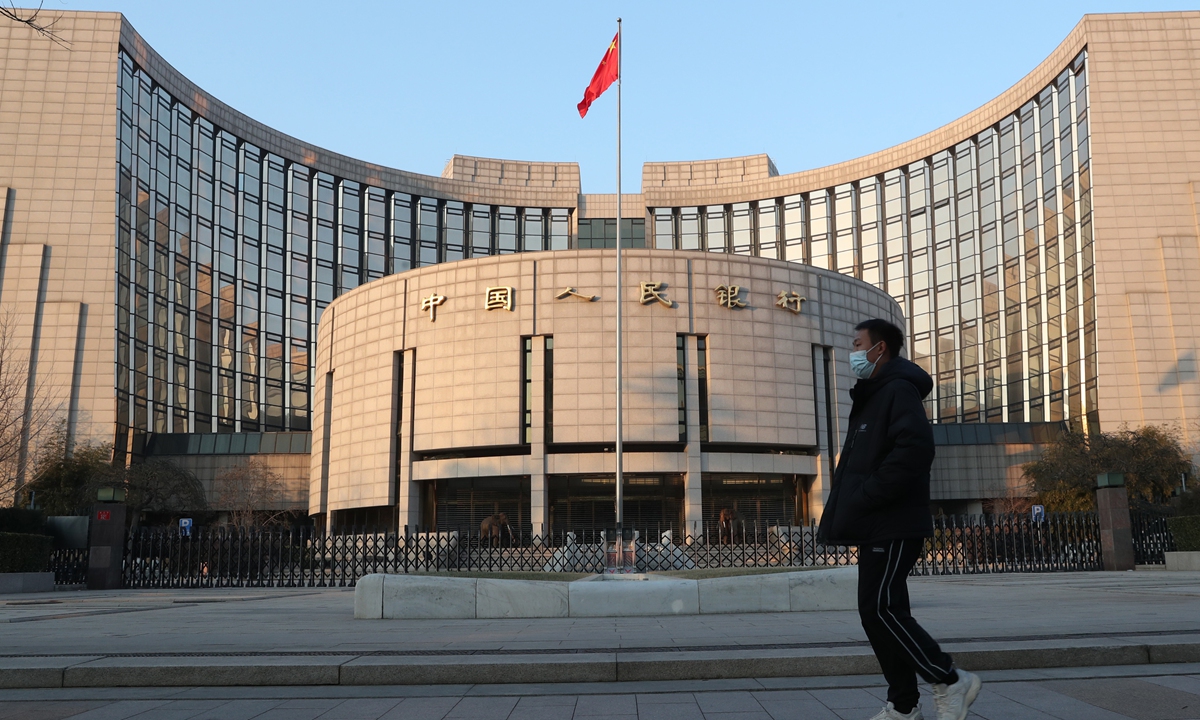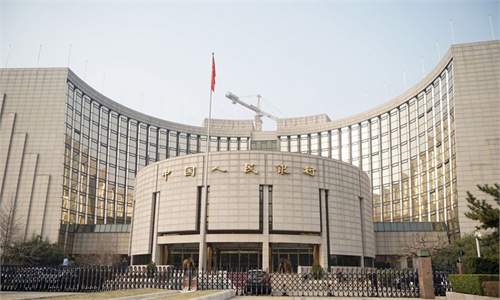China moves to support small firms, while keeping loan rates unchanged
PBC refrains from loan rate cuts, but more efforts to stablize economy

China's central bank Photo: CFP
China's State Council announced on Monday that the country will offer nearly 1 trillion yuan ($157 billion) in tax rebates to small businesses, as part of broad efforts to stabilize the Chinese economy amid rising downward pressure.
At a State Council Executive meeting, Premier Li Keqiang also outlined more comprehensive measures for stabilizing market expectations and ensuring the stable development of the capital markets.
Meanwhile, the People's Bank of China (PBC), the central bank, refrained from further loan rate cuts on Monday. The PBC kept its benchmark interest rates for corporate and household lending unchanged on Monday, with the one-year loan prime rate (LPR) held at 3.70 percent, while the five-year LPR remained at 4.60 percent.
The five-year LPR is a benchmark for home mortgages. China lowered LPR rates in January.
The decision was somewhat of a surprise for market watchers. Economists, analysts and traders surveyed last week by Reuters found that just over half of the respondents expected China to keep both rates unchanged, amid calls for more easing.
The move also followed a pledge by China's top financial affairs watchdog last Wednesday to stabilize economic growth and capital markets. The meeting helped stall a stock market fall. Last week, the PBC refrained from cutting its one-year medium-term lending facility (MLF) rate.
However, the PBC may be holding off on LPR cuts for a more critical moment, analysts said, while it assesses efforts to lower borrowing costs for smaller businesses that are under pressure from the epidemic and watches closely the impact of rising commodity prices.
Should the economy and loan data show weakness in March, the central bank would likely take the initiative to push down policy lending rates and the LPR, to signal more support to stabilize the economy and the property market.
"The PBC will further drive down interest rates but it seems it is withholding it for the moment," an economist who declined to be identified told the Global Times on Monday. "At this moment, central bank officials may save this option for more maneuverability on a rainy day."
The economy is battling pressure from a demand contraction, supply shocks and weakening expectations, and an increasingly complicated and uncertain external environment, as identified by the annual Central Economic Work Conference last December.
"One possibility could be that the central bank and Ministry of Finance are jointly mulling plans to bolster the real economy under the impact of the Omicron surge and epidemic control measures that disrupted business in a broader effort to alleviate the burden of market entities," the economist said.
Analysts noted that for the moment, China's monetary policy is free of the impact of the US Federal Reserve's rates hike. The Fed hiked interest rates last week for the first time since 2018 to pivot from near-zero rates battling COVID-19 to fighting economic risks from excessive inflation. Goldman Sachs on Monday said it expected the Fed to raise interest rates five times in 2023.
Prominent Chinese financial expert Yu Yongding said last week that China would further cut interest rates to stabilize the economy and noted that the real interest rate in the US is negative while China's is positive.
Analysts said that with the yuan still firm against the US dollar, Fed rate hikes have a limited impact on Chinese monetary policy, and the primary focus of the PBC remains how well its policies are doing in shoring up market entities suffering the economic onslaught of the epidemic.
China reported better-than-expected economic data in the first two months of the year, also giving the PBC room. Industrial production rose 7.5 percent year-on-year in January and February, accelerating 3.2 percentage points compared with December 2021, according to data from the National Bureau of Statistics last week.
In a sign that macro policies were stabilizing the economy, infrastructure investment accelerated, with fixed-asset investment up 12.2 percent to 5.08 trillion yuan ($800 billion) and infrastructure investment up 8.1 percent. Real estate development investment increased by 3.7 percent year-on-year.
Yan Yuejin, research director at Shanghai-based E-house China R&D Institute, told the Global Times that the direction and room for lowering the LPR were still there. Lowering borrowing costs would be positive for the property market and help lower lending rates, he said.


